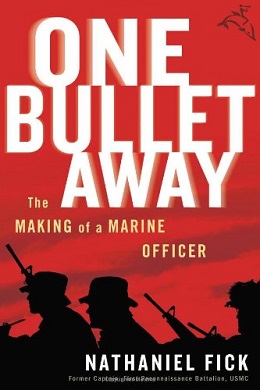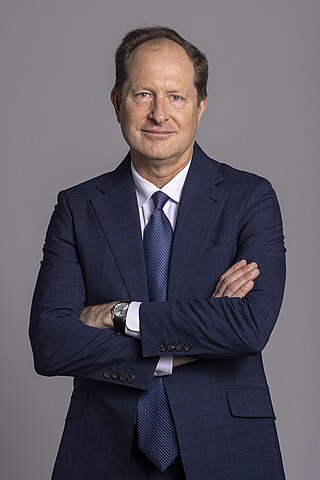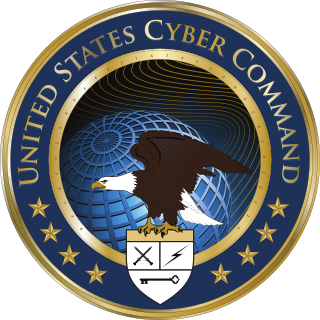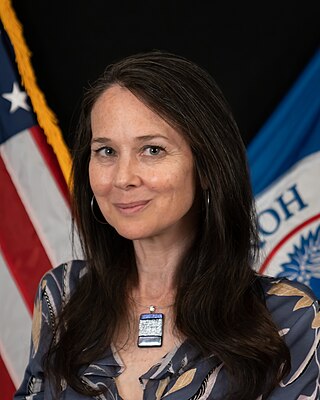
Keith Brian Alexander is a retired four-star general of the United States Army, who served as director of the National Security Agency, chief of the Central Security Service, and commander of the United States Cyber Command. He previously served as Deputy Chief of Staff, G-2 (Intelligence), United States Army from 2003 to 2005. He assumed the positions of Director of the National Security Agency and Chief of the Central Security Service on August 1, 2005, and the additional duties as Commander United States Cyber Command on May 21, 2010.
A cybersecurity regulation comprises directives that safeguard information technology and computer systems with the purpose of forcing companies and organizations to protect their systems and information from cyberattacks like viruses, worms, Trojan horses, phishing, denial of service (DOS) attacks, unauthorized access and control system attacks. While cybersecurity regulations aim to minimize cyber risks and enhance protection, the uncertainty arising from frequent changes or new regulations can significantly impact organizational response strategies.

Jeff Moss, also known as Dark Tangent, is an American hacker, computer and internet security expert who founded the Black Hat and DEF CON computer security conferences.

One Bullet Away: The Making of a Marine Officer is an autobiography by Nathaniel Fick, published by Houghton-Mifflin in 2005. An account of Nathaniel Fick's time in the United States Marine Corps, it begins with his experiences at Officer Candidate's School in Quantico, Virginia and details his deployments to Afghanistan and Iraq during the War on Terror.

Howard Anthony Schmidt was a partner with Tom Ridge in Ridge Schmidt Cyber LLC, a consultancy company in the field of cybersecurity. He was the Cyber-Security Coordinator of the Obama Administration, operating in the Executive Office of the President of the United States. He announced his retirement from that position on May 17, 2012, effective at the end of the month.

Mark Francis Brzezinski is an American lawyer serving as the United States Ambassador to Poland since 2022. He previously served as the United States Ambassador to Sweden from 2011 to 2015 under President Barack Obama.

United States Cyber Command (USCYBERCOM) is one of the eleven unified combatant commands of the United States Department of Defense (DoD). It unifies the direction of cyberspace operations, strengthens DoD cyberspace capabilities, and integrates and bolsters DoD's cyber expertise which focus on securing cyberspace.
Cyberwarfare is the use of computer technology to disrupt the activities of a state or organization, especially the deliberate attacking of information systems for strategic or military purposes. As a major developed economy, the United States is highly dependent on the Internet and therefore greatly exposed to cyber attacks. At the same time, the United States has substantial capabilities in both defense and power projection thanks to comparatively advanced technology and a large military budget. Cyber warfare presents a growing threat to physical systems and infrastructures that are linked to the internet. Malicious hacking from domestic or foreign enemies remains a constant threat to the United States. In response to these growing threats, the United States has developed significant cyber capabilities.

Rodolfo "Rudy" Reyes is an American conservationist, martial arts instructor, actor, and former active duty United States Marine. He is best known for portraying himself in the HBO TV miniseries Generation Kill.

Endgame provides a cyber operations platform supporting the detection, exploitation, and mitigation of cyber-threats. Endgame was started by executives from ISS.

Ted N. "Twig" Branch retired as a vice admiral in the United States Navy on 1 October 2016, after serving the last three years of his 37-year career as the Deputy Chief of Naval Operations for information warfare. In that capacity, he was the resource sponsor for the N2N6 portfolio which includes program investments for assured command and control, battlespace awareness, and integrated fires. He was the Navy's Chief Information Officer, the Director of Navy Cybersecurity, the leader of the Information Warfare Community, and the Director of Naval Intelligence. Branch was questioned by the Department of Justice regarding the Glenn Defense Marine Asia investigation in November 2013 and his access to classified information was suspended by the Secretary of the Navy. After a three-year investigation, Branch was cleared of all charges.
Presidential Policy Directive 20 (PPD-20), provides a framework for U.S. cybersecurity by establishing principles and processes. Signed by President Barack Obama in October 2012, this directive supersedes National Security Presidential Directive NSPD-38. Integrating cyber tools with those of national security, the directive complements NSPD-54/Homeland Security Presidential Directive HSPD-23.

Gabriel "Gabi" Siboni is a colonel in the Israel Defense Forces Reserve service, and a senior research fellow and the director of the Military and Strategic Affairs and Cyber Security programs at the Institute for National Security Studies. Additionally, he serves as editor of the tri-yearly published, Military and Strategic Affairs academic journal at INSS. Siboni is a senior expert on national security, military strategy and operations, military technology, cyber warfare, and force buildup. Siboni is an Associate Professor, working specifically in the management of Cyber Security and a part-time lecturer at the Francisco de Vitoria University in Madrid

Michael S. Rogers is a retired four-star admiral of the United States Navy. Rogers served as the second commander of the United States Cyber Command (USCYBERCOM) from April 2014 to May 2018 while concurrently serving as the 17th director of the National Security Agency (NSA) and as chief of the Central Security Service (CSS). During his tenure, he helped transform and elevate U.S. Cyber Command into a unified combatant command. Rogers relinquished command to General Paul M. Nakasone on May 4, 2018 and retired from the Navy a few weeks later on June 1, 2018.

Paul Miki Nakasone is a retired general in the United States Army who served as the commander of United States Cyber Command. He concurrently served as the director of the National Security Agency and as chief of the Central Security Service. Nakasone took command of the United States Second Army and Army Cyber Command in October 2016, until the Second Army's inactivation in March 2017. In May 2018, he became head of the National Security Agency, the Central Security Service and the United States Cyber Command.
The Marine Corps Cyber Auxiliary is a volunteer organization designed to attract cybersecurity experts in aiding United States Marine Corps cyberspace readiness.

Jen Easterly is an American intelligence and former military official who is serving as the director of the Cybersecurity and Infrastructure Security Agency in the Biden administration. She was confirmed by a voice vote in the Senate on July 12, 2021.

Ryan P. Heritage is a United States Marine Corps major general who serves as the director of operations of the United States Cyber Command. He previously served as the commander of the Marine Corps Forces Cyberspace Command and Marine Corps Forces Space Command, and Marine Corps Information Command.

The Office of the National Cyber Director is an agency in the United States Government statutorily responsible for advising the President of the United States on matters related to cybersecurity. It was established in 2021.
















